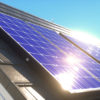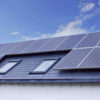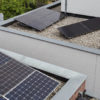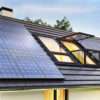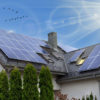The push for more representation of renewable energy in our national grid is an all-around good thing. Decentralized energy production means a more robust grid, consumers have more purchasing power and lower energy prices.
Even though Australia has become a world leader in solar power, with 20% homes with PV panels, serious concerns abound. A solar audit by the Australian National Audit Office (ANAO) had found that one in six solar installations were substandard, while 30% were unsafe.
Unfortunately, the high demand for solar power in Australia has caused loads of poor-quality panel manufacturers to dump their products on unsuspecting consumers.
The buyers themselves have no way of discerning quality panels from the substandard ones. Sometimes, the PV cells are poorly constructed. On other occasions, the cells are not sealed properly and end up getting damaged by the elements.
Shady solar installers also cut corners while installing a solar power system to save on costs. Not only can a poor installation cause perfectly good solar panels to malfunction, but it can also damage the property.
ANAO had also found that only 1.2% of solar installations were inspected by the Clean Energy Regulator, meaning there are probably a lot of faulty installations still out there.
Signs of an Unethical Solar Installer
Buyers pretty much are on their own here since they have to make the final decision. Even so, education oneself on how to tell a good installer from a bad one can help.
Less-than-reputable solar installers are adept at using two tactics to lure unsuspecting buyers in their trap. They usually opt for low-pricing to attract price-conscious buyers. Other, more “sophisticated” ones actually price poor quality products higher and use clever marketing to make it seem they are offering a premium product.
The solar market really is like any other — you get what you pay for. So, if it sounds too good to be true, then it almost always is. This isn’t to say that all affordable installers are bad intentioned. Rather, you should be very vigilant if you have the slightest doubt.
Some other telltale signs of a shady installer are:
No search engine presence: All good quality installers and solar panel manufacturers take their online presence seriously. If an installer claims to be very experienced but you can’t find anything about them online (or no one seems to know anything about them), it’s safe to assume they’re a fly-by-night gig.
Weird, negative or no reviews: Often installers will have a website and listings on popular social networking and business review sites. But they will either have no reviews, or they will seem fake. For example, the reviews will be short, they’ll hardly tell you anything, or will be mostly negative (if the seller cannot remove such reviews).
Aggressive sales tactics: Were you contacted by an installer out of nowhere? Did they make you an offer that was just what you wanted to hear? Did it seem like they couldn’t care less about your questions? Did the contract only highlight the cost after incentives and rebates while hiding the full cost of installation? All of these are red flags that should put you on guard.
How to Tell the Quality of a Solar Panel
Besides solar installers, you should also have some understanding of how solar panels are tested. You need to look out for —
What Tier a solar manufacturer is assigned: You will find phrases like “Tier-1”, “Tier-2”, and “Tier-3” being thrown around to separate the good, the bad and the ugly solar panels. But these can just as easily be used as marketing speak to confuse buyers, so it’s important to understand how they are assigned.
Tier rankings are awarded by financial investors to solar manufacturers and not the panels they produce. So, an old and outdated solar panel model can be considered “tier-1” simply because of its make.
You can also use the Clean Energy Council’s (CEC) list of approved solar retailers. These companies have already been vetted and new retailers are constantly added to it.
Testing standards the panel has passed: Good quality panels are subjected to rigorous testing that ensure they can withstand most natural conditions for at least 25 years. Certification is carried out by the International Electrotechnical Commission.
Standard tests include impact resistance, load-bearing capacity, corrosion resistance, and potential induced degradation. On the successful completion of a test, a solar panel model is issued a certificate. We’ve covered this in more depth in our article on solar panel quality.
Let bidmysolar™ Help You Make a Better Decision
Buying a solar panel is a complex and tedious decision. If you really want to get the best deal, then there’s a lot of legwork to be done and many questions to be asked. There’s stiff competition even amongst the best panels and installers. But choosing between them can be challenging.
As Australia’s premier solar search engine, bidmysolar™ can help you get the best deal from Australia’s leading, CEC approved solar panel manufacturers and installers. Our process ensures your requirements are prioritized in a safe, confidential and rewarding environment. Learn more about how we help you get a solar power system or contact us if you have any questions.

